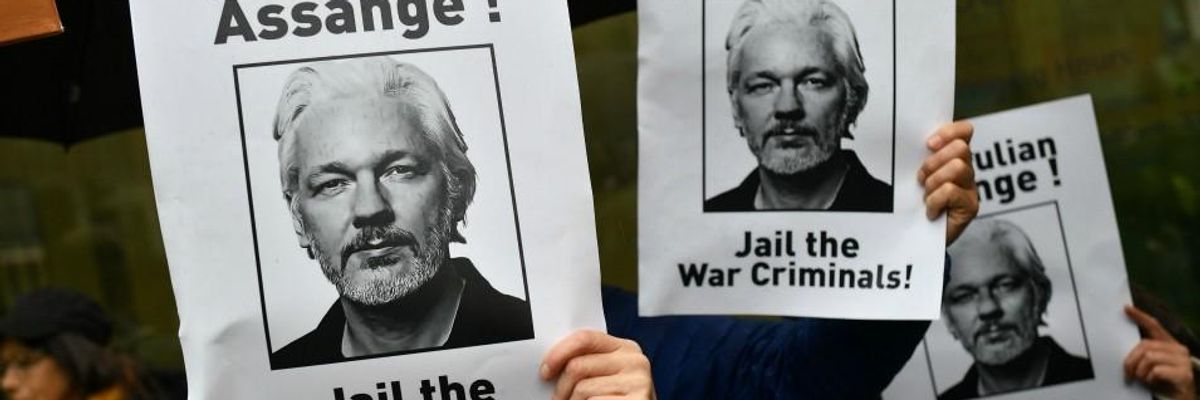Amnesty International on Friday criticized what it called a "full-scale assault on the right to freedom of expression" by the United States and demanded the country drop its Espionage Charges against and extradition request of WikiLeaks founder Julian Assange.
The call from the human rights organization came three days before a London court will determine the fate of that extraction request.
Assange has been in the high security Belmarsh prison in London since April 2019 after being forcibly removed from the Ecuadoran embassy where he'd been effectively trapped since 2012. The WikiLeaks founder faces up to 175 years in prison for 18 counts of violating the Espionage Act--charges journalists and press freedom defenders said represent a dangerous assault on press freedom by attacking Assange for publishing and exposing U.S. war crimes.
Doctors and a United Nations expert have warned that Assange is being held under conditions that threaten his very life.
"The U.S. government's unrelenting pursuit of Julian Assange for having published disclosed documents that included possible war crimes committed by the U.S. military is nothing short of a full-scale assault on the right to freedom of expression," said Massimo Moratti, Amnesty International's deputy Europe director.
"The potential chilling effect on journalists and others who expose official wrongdoing by publishing information disclosed to them by credible sources could have a profound impact on the public's right to know what their government is up to," he continued. "All charges against Assange for such activities must be dropped."
If the court fails to drop the charges, Moratti added, the U.K. must not allow him to be extradited.
"Julian Assange could face detention conditions in the U.S. that amount to torture and other ill-treatment, including prolonged solitary confinement. The risk of an unfair trial is very real given the targeted public campaign against him undertaken by U.S. officials at the highest levels, which has severely undermined his right to be presumed innocent," said Moratti.
Over 1,200 international journalists amplified the call for Assange's freedom in a new statement this week.
"This case stands at the heart of the principle of free speech," they wrote. "If the U.S. government can prosecute Mr Assange for publishing classified documents, it may clear the way for governments to prosecute journalists anywhere, an alarming precedent for freedom of the press worldwide."
The "use of espionage charges against people publishing materials provided by whistleblowers is a first," the journalists said, "and should alarm every journalist and publisher."
Dunja Mijatovic, the Council of Europe Commissioner for Human Rights, added her voice Thursday to the chorus against Assange's extradition.
"The broad and vague nature of the allegations against Julian Assange, and of the offenses listed in the indictment, are troubling as many of them concern activities at the core of investigative journalism in Europe and beyond," she said. "Consequently, allowing Julian Assange's extradition on this basis would have a chilling effect on media freedom, and could ultimately hamper the press in performing its task as purveyor of information and public watchdog in democratic societies.

